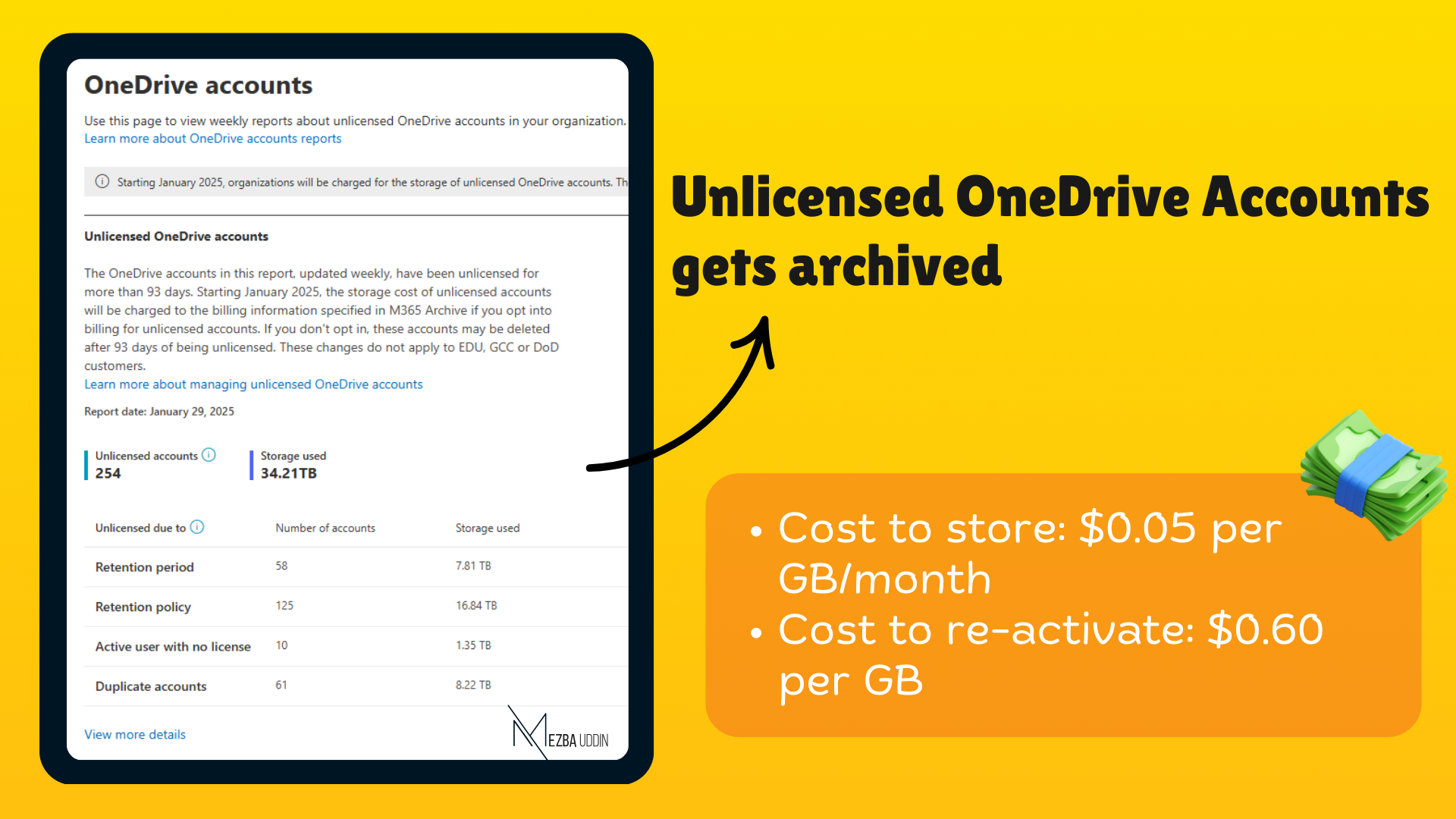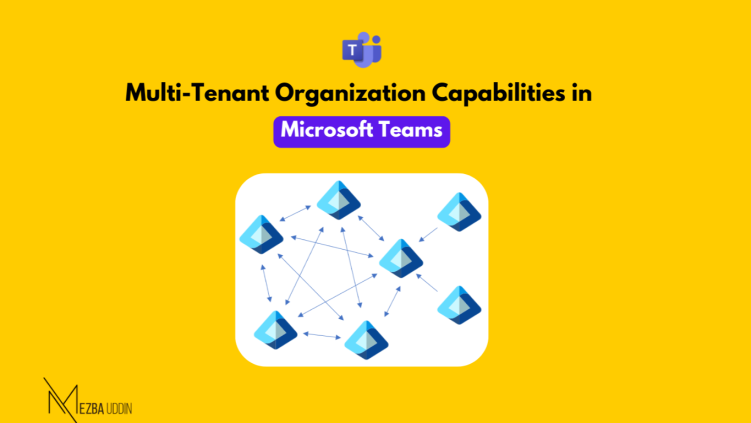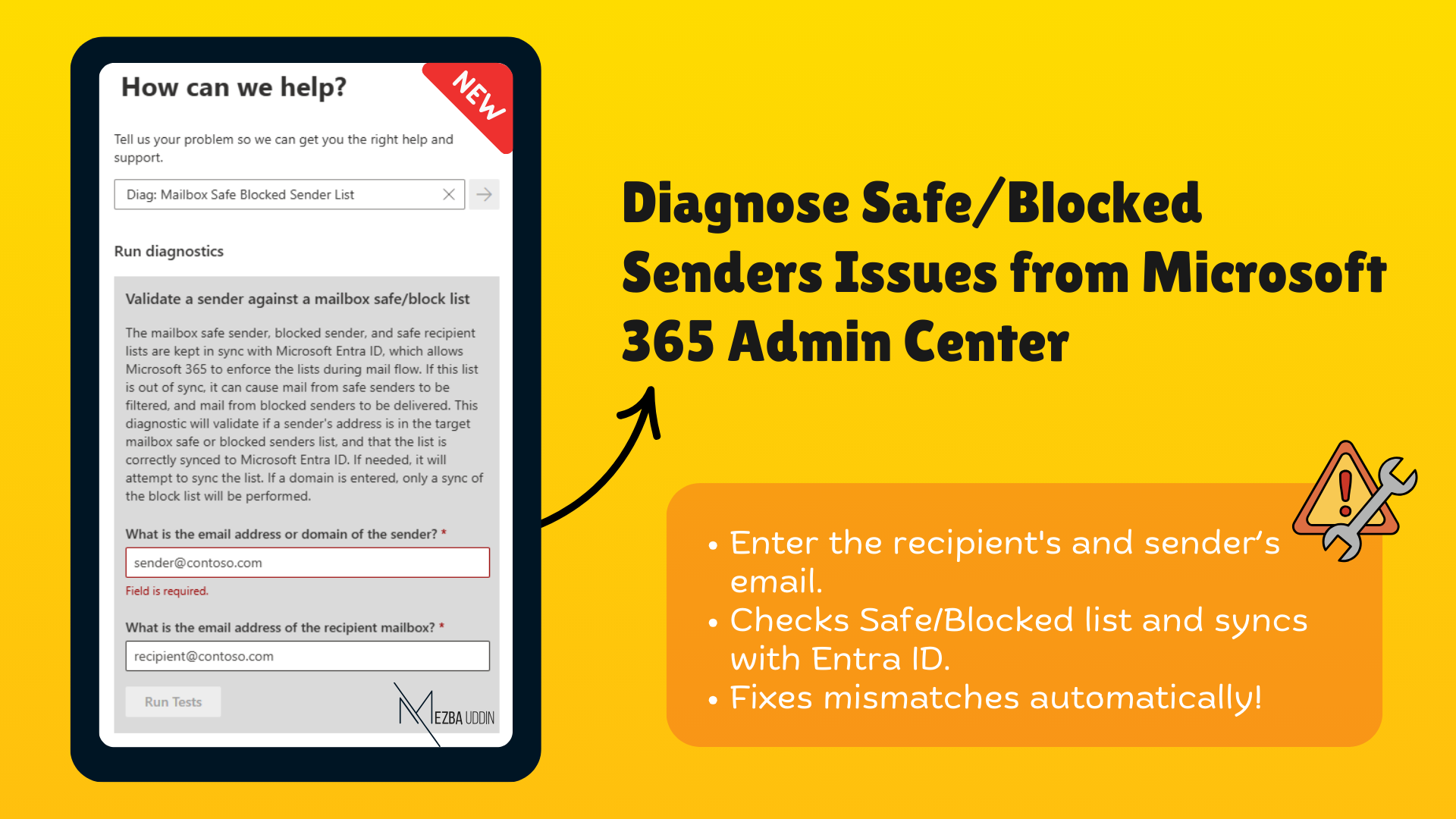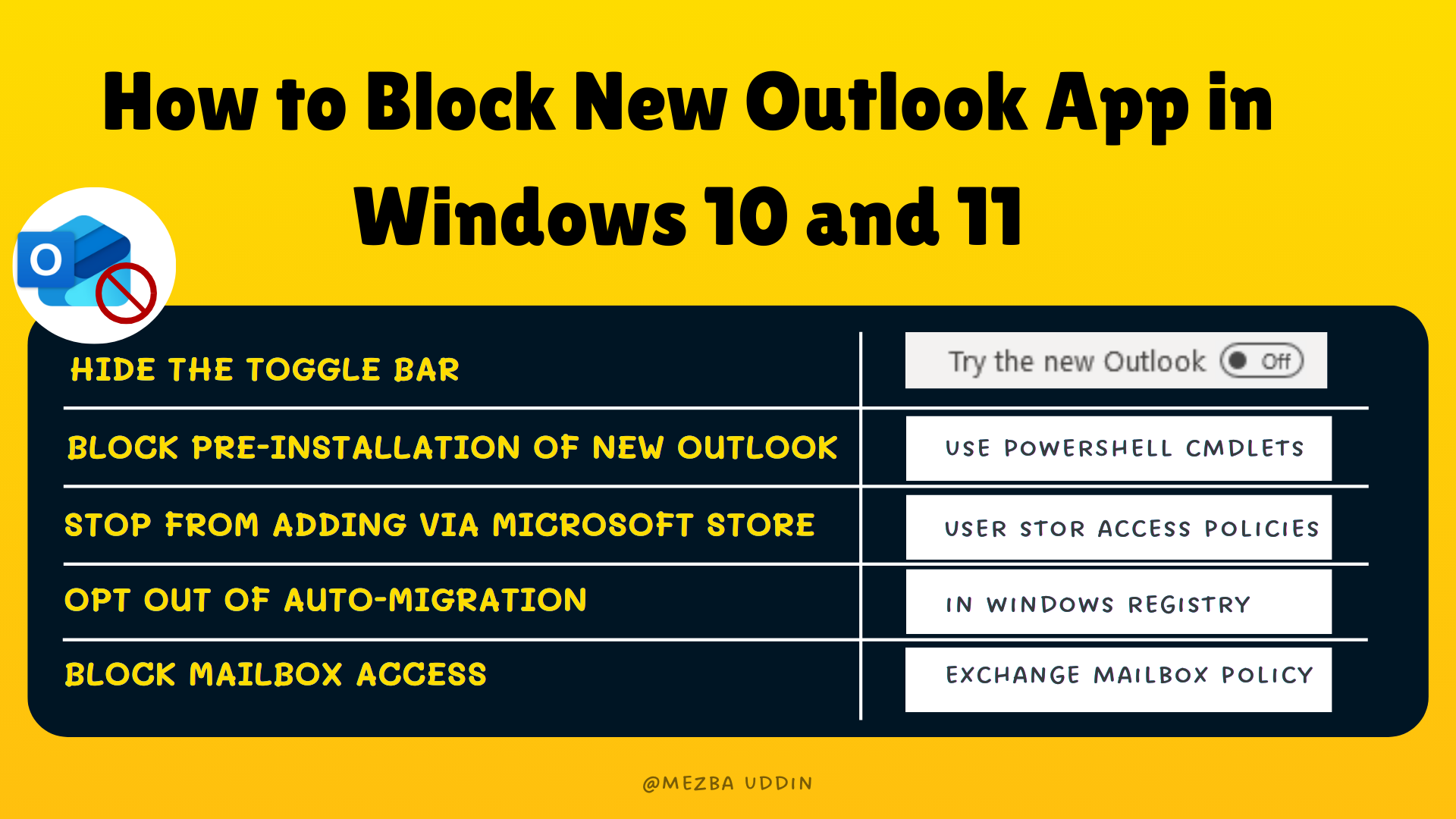If you’re using OneDrive under Microsoft 365, there’s a pretty important update you need to know about. Not so recently, but the latest is Microsoft announced that unlicensed OneDrive accounts will be automatically archived.
Now, I know what you’re thinking: “Unlicensed OneDrive accounts? And why should I care?” But, it’s time to care from now on!
If you’re scratching your head about what that means or how it affects you, I will help you understand it. Let’s dive into what unlicensed accounts are, why Microsoft is rolling out this change, and how you can manage these accounts before things get messy.
What Are Unlicensed OneDrive Accounts?
Simply put, an unlicensed account is one that doesn’t have an active Microsoft 365 subscription or license attached to it.
A OneDrive account becomes unlicensed when a user’s Microsoft 365 license is removed. In simple terms, this means the user no longer has access to their OneDrive storage, but their data still exists—at least for a while.
For example, let’s say your company gave you a OneDrive account as part of your Microsoft 365 subscription. But then you left the job, and your subscription was canceled. That account would now be considered unlicensed.
How Does an Account Become Unlicensed?
Now that we know what unlicensed accounts are, let’s talk about how they happen. Here are a few common ways:
- Expired Subscriptions: This is the most straightforward one. If your Microsoft 365 subscription expires and you don’t renew it, your OneDrive account loses its licensed status.
- Employee Departures: When someone leaves the company, their Microsoft 365 license is removed, leaving their OneDrive account in an unlicensed state.
- Manual License Removal: Admins might remove a user’s license intentionally for various reasons, which automatically affects the linked OneDrive account.
- Account Changes: Sometimes, changes like migration or restructuring can lead to accounts becoming unlicensed without proper reassignments.
In short, these accounts are essentially inactive OneDrive accounts with no assigned user license.
Microsoft’s New Storage Policy for Unlicensed OneDrive Accounts
Starting January 27, 2025, Microsoft will automatically archive OneDrive data if the account remains unlicensed for more than 93 days.
Case 1: No Retention Policy Applied
What happens?
- Day 93 → The OneDrive account is moved to the Recycle Bin.
- After the Recycle Bin retention period → The account is permanently deleted (no recovery possible).
📌 Key takeaway: If there’s no retention policy, the unlicensed OneDrive will eventually be deleted—first moved to the Recycle Bin, then permanently wiped.
Case 2: Retention Policy Applied
🔒 What happens?
- Day 93 → The OneDrive account is automatically archived instead of being deleted.
- The user loses access (no edits, no downloads, no sharing).
- Only admins can access and manage the archived data in Microsoft 365 Archive.
📌 Key takeaway: Retention policies protect data by archiving it instead of deleting it, but users lose access.
Case 3: Retention Policy Applied + Billing Enabled
💰 What happens?
- The OneDrive account is archived permanently (it won’t be deleted).
- Storage charges apply ($0.05/GB per month).
📌 Key takeaway: If billing is enabled, archived OneDrive accounts stay stored indefinitely—but you need to pay monthly to store the contents within it!
💡 What this means if you are an Admin
✔ No retention policy? Expect automatic deletion.
✔ Retention policy applied? The account gets archived, not deleted.
✔ Billing enabled? Storage fees starts, so plan your budget wisely.
For example, if an account becomes unlicensed on March 1, 2025:
- April 30, 2025 (Day 60): The account is set to read-only.
- June 2, 2025 (Day 93): The account is archived or moved to the recycle bin, depending on applicable policies.
This might sound harsh, but it’s actually a pretty standard practice in the tech world. Companies like Google and Dropbox have similar policies for free accounts.
So, to streamline their services and ensure that resources are being used efficiently, Microsoft has decided to implement a new storage policy for unlicensed OneDrive accounts.
Cost Calculations for OneDrive Unlicensed Accounts:
Okay, let’s talk money. Microsoft isn’t just archiving these accounts for free—there’s a price tag attached. Here’s what you’ll be charged for keeping and restoring unlicensed OneDrive accounts:
1️⃣ Storage Cost for Archived OneDrive Accounts:
If an unlicensed OneDrive account gets archived, you’ll be charged $0.05 per GB per month, when you opt in for billing.
Example Calculation:
- You have 100 unlicensed OneDrive accounts.
- Each account has 1 TB (1,024 GB) of data.
- Monthly cost = 100 × 1,024 GB × $0.05 = $5,120 per month!
That’s a serious chunk of change just to keep old data around. So, if you don’t need it, consider deleting accounts before they hit the archive stage.
2️⃣ Reactivation Cost for Archived Accounts:
Need to restore an archived OneDrive account? That’s going to cost you $0.60 per GB.
Example Calculation:
- You want to restore a single user’s 1 TB OneDrive.
- The cost is 1,024 GB × $0.60 = $614.40 to bring back that data.
These fees apply to archived unlicensed OneDrive accounts and are billed for the full amount of consumed storage. Unlicensed accounts cannot utilize unused SharePoint storage quota, even if Microsoft 365 Archive is configured within the tenant.
What Should You Do If You Have an Unlicensed Account?
✔ Assign licenses before OneDrive accounts get archived – If you still need user data, make sure they have a valid Microsoft 365 license.
✔ Delete unnecessary accounts – If a user has left the organization and their data isn’t needed, remove their account before Day 93 to avoid unnecessary costs.
✔ Plan for storage expenses – If your organization has a lot of archived OneDrive accounts, make sure you budget for the additional storage fees.
✔ Set Up Policies for Departing Employees – To avoid scrambling for data at the last minute, establish a policy for handling employee offboarding. This can include:
- Transferring OneDrive files before removing licenses.
- Implementing a retention policy for user data.
- Setting up alerts to notify admins when OneDrive accounts become unlicensed.
✔ Automate Reporting for Unlicensed Accounts:
Manually tracking unlicensed accounts can be a hassle. Instead, automate the process by generating reports on unlicensed OneDrive accounts. This will help you:
- Identify accounts that are at risk of archival.
- Take timely action before data is permanently lost.
- Maintain compliance with organizational data policies.
How to Get Reports on Unlicensed OneDrive Accounts
If you’ve made it this far and you’re thinking, “Uh-oh, could this be me?”—don’t panic. Here’s a step-by-step guide to figuring out whether your organization is affected: Luckily, Microsoft made it easy to get a report on unlicensed accounts. Here’s how:
- Login to SharePoint admin center.
- Click on the Reports dropdown and select OneDrive Accounts.

You can find the unlicensed OneDrive accounts report here classified under four different categories like retention period, retention policy, active users no license, duplicate accounts. You can export the reports to CSV file and plan accordingly!
Final Thoughts
Change can be a little scary, especially when it comes to something as important as your data. But the good news is that Microsoft isn’t leaving you high and dry. They’ve already given us plenty of notice and options to make sure your files are safe!
So, go check your OneDrive account, and let’s make sure you’re all set for this new chapter. And if you found this blog helpful, feel free to share it with anyone else who might need a heads-up.
Until next time, happy cloud storing!




